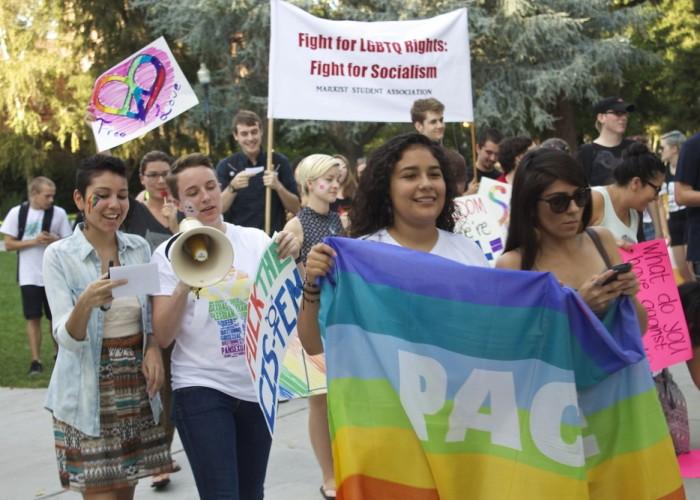
With the recent passage of the Indiana Religious Freedom Restoration Act and the proposal of the Sodomite Suppression act in California, LGBTQ+ advocates have been trying to raise attention to these legislations.
Though the Indiana act was only signed this Tuesday, it has already caused a national uproar.
Hundreds have taken online to social media sites like Twitter and Facebook, posting their displeasure about the act, which they see as being homophobic.
Indiana has also become the target of the #boycottIndiana movement, which seeks to have the NCAA tournament finals moved to a different state.
“I think it’s awful that we still have to be having this conversation about such blatantly discriminatory legislation, but that we shouldn’t fool ourselves into thinking that Indiana is some extreme exception,” Chico State LGBTQ+ director Eliza Dyer said. “We are supposedly a very progressive nation, but these types of bills and many forms of discrimination are still happening all around the country.”
Though California hasn’t been too affected by the controversy surrounding the Indiana act, it has its own controversial legislation. A recent initiative entitled “the Sodomite Suppression Act” was submitted to the state government to potentially be added to the ballot.
The bill, which was proposed by lawyer Matt McLaughlin, calls for the death of anyone who engages in same-sex sodomy “by bullets to the head or by any other convenient method.”
California Attorney General Kamala Harris has tried to have the initiative blocked, but is bound by law to prepare a title and summary for the bill so it can begin collecting signatures.
“LGBTQ+ people face enough fear for their safety without having to pass people gathering signatures for sanctioned violence against them when they’re just trying to go to the grocery store,” Dyer said.
Campus Christian group Challenge declined to comment on the passage of the Indiana act or on the proposal of the Sodomite Suppression Act.
The act is intended to keep the government from burdening a person’s right to practice religion, unless such a burden is “essential to further a compelling governmental interest” and “the least restrictive means of furthering the compelling governmental interest.”
Currently, 21 states have passed religious freedom restoration acts, and an additional 11 have state court rulings that create a similar law.
Joe Silva can be reached at newseditor@theorion.com or @theorion_news on Twitter.








